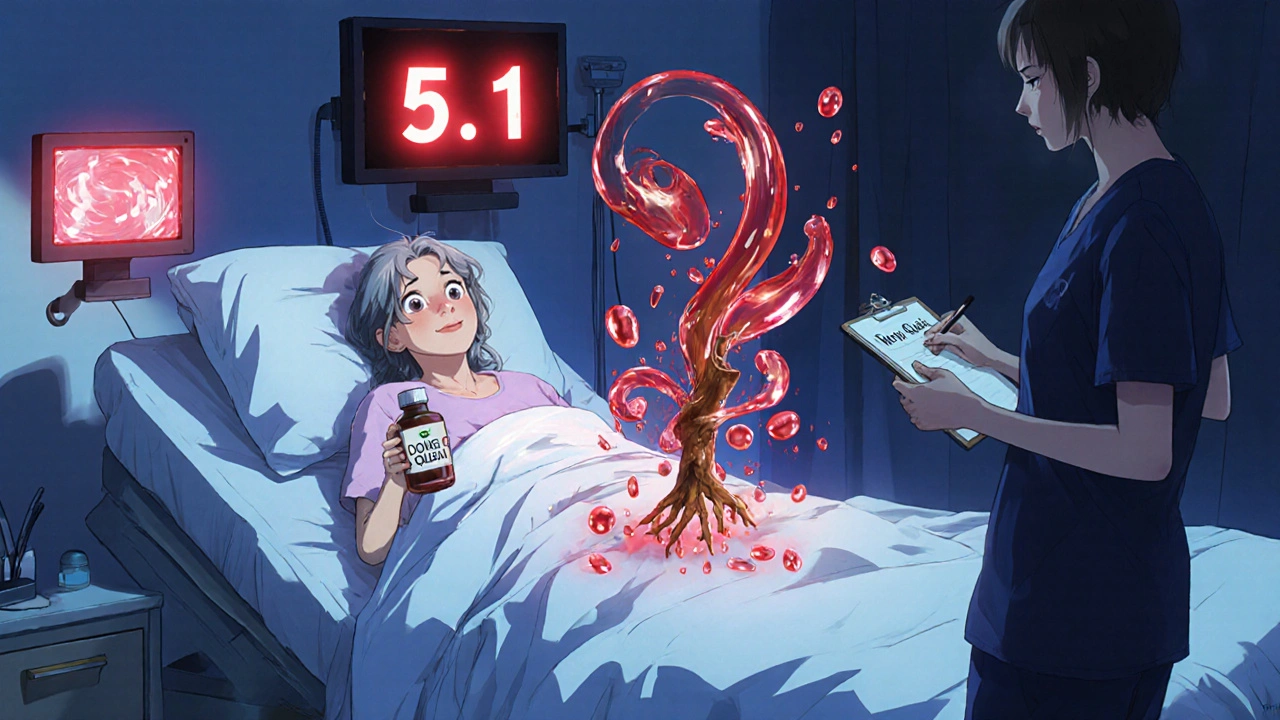
Dong Quai can dangerously increase the blood-thinning effect of warfarin, raising the risk of serious bleeding. Learn why this herbal supplement is not safe to use with anticoagulants and what to do instead.
When you take warfarin, a blood thinner used to prevent dangerous clots in conditions like atrial fibrillation or after a valve replacement. Also known as Coumadin, it saves lives—but it doesn’t come without risks. Warfarin works by slowing down your blood’s ability to clot, which is exactly what you need if you’re at risk for stroke or pulmonary embolism. But that same mechanism means even small changes in your body can turn a helpful drug into a dangerous one.
The biggest concern with warfarin, a vitamin K antagonist anticoagulant is bleeding. It can happen anywhere—nosebleeds, bruising, heavy periods, or worse: internal bleeding in the brain or gut. You won’t always feel it coming. That’s why INR monitoring, a blood test that measures how long it takes your blood to clot is non-negotiable. Your doctor will target an INR between 2.0 and 3.0 for most people, but that number can change based on your condition. If your INR is too low, clots can form. Too high, and you risk serious bleeding. Home INR testing is now an option for many, giving you more control and fewer clinic visits.
Warfarin doesn’t work in a vacuum. It reacts with food, especially leafy greens rich in vitamin K, and dozens of medications, from antibiotics to herbal supplements like St. John’s wort. Even a new painkiller or cold medicine can throw your levels off. That’s why keeping a consistent diet and telling every doctor you see that you’re on warfarin isn’t just advice—it’s life-saving. You also need to watch for signs like unusual bruising, blood in urine or stool, severe headaches, or dizziness. These aren’t normal side effects—they’re red flags.
Some people worry about long-term use, but for many, warfarin remains the best choice—especially when cost, kidney function, or other health factors make newer blood thinners less suitable. Still, knowing the risks helps you stay in charge. You’re not just taking a pill—you’re managing a delicate balance every day. The posts below give you real, practical guidance on what to expect, how to respond to side effects, how to handle missed doses, and how to work with your care team to stay safe. Whether you’re new to warfarin or have been on it for years, this collection gives you the tools to spot trouble early and take action before it becomes an emergency.

Dong Quai can dangerously increase the blood-thinning effect of warfarin, raising the risk of serious bleeding. Learn why this herbal supplement is not safe to use with anticoagulants and what to do instead.